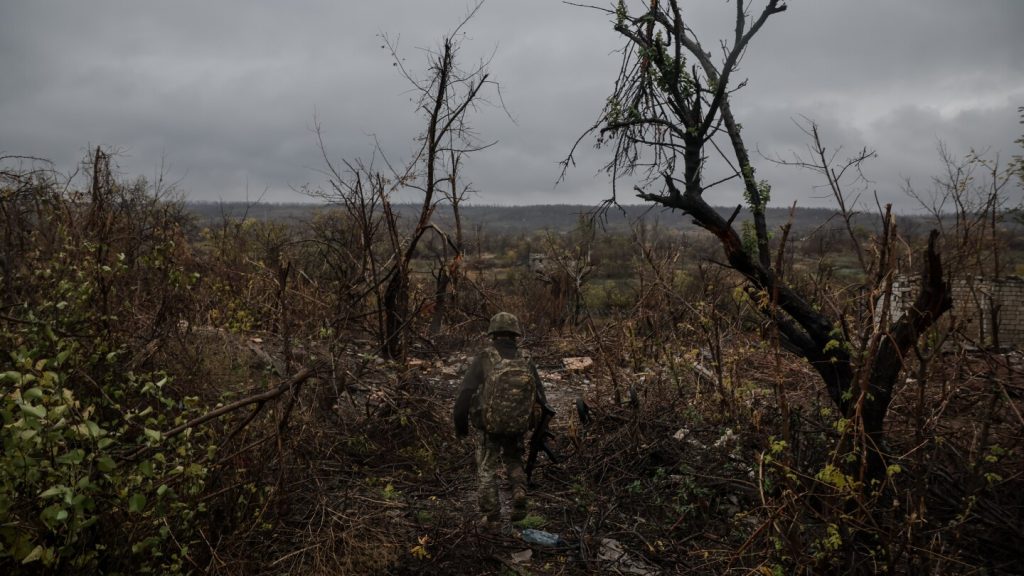Listen to the article
South African authorities have launched an investigation into how 17 citizens were deceived into joining mercenary forces in the Russia-Ukraine conflict, officials announced Thursday.
The South Africans, all men between the ages of 20 and 39, reportedly issued desperate pleas for assistance after becoming trapped in Ukraine’s eastern Donbas region. According to President Cyril Ramaphosa, they were enticed by promises of highly paid employment opportunities.
“President Ramaphosa and the South African government strongly condemn the exploitation of young vulnerable people by individuals working with foreign military entities,” said a statement from the president’s office. South African diplomatic channels are now working to secure the repatriation of these citizens.
The president’s spokesperson indicated that it remains unclear which side of the conflict the men are fighting for. However, Russia has faced numerous accusations of deceptively recruiting foreign nationals to bolster its military presence in Ukraine. Intelligence reports suggest that Russian recruitment operations often target economically vulnerable populations with false promises of legitimate civilian employment.
The incident highlights a growing pattern of mercenary recruitment that has become a concerning dimension of the ongoing conflict. Military analysts note that the use of foreign fighters allows belligerents to supplement their forces while potentially reducing the political costs associated with casualties among their own citizens.
South Africa maintains a position of neutrality in the Russia-Ukraine conflict, which has complicated its diplomatic response. The country has faced criticism from Western nations for its refusal to condemn Russia’s invasion of Ukraine, while emphasizing the importance of peaceful conflict resolution.
This case is not isolated. Both India and Nepal have reported that some of their citizens were recruited to fight for Russia under similar pretenses. Ukrainian authorities have consistently claimed that Russia employs mercenaries from various African countries and elsewhere to supplement its military operations.
The deceptive recruitment extends beyond combat roles. An Associated Press investigation last year revealed how hundreds of women from African countries were tricked into working at a drone manufacturing facility in Tatarstan’s Alabuga Special Economic Zone, approximately 1,000 kilometers east of Moscow. These women had been promised jobs in hospitality and catering, only to find themselves contributing to Russia’s military-industrial complex amid acute wartime labor shortages.
In response to the growing threat, the South African government issued warnings in August specifically targeting young women, urging them to be vigilant about fraudulent job advertisements promoted by social media influencers promising employment and educational opportunities in Russia.
International labor rights organizations have expressed concern about these recruitment tactics, pointing to violations of international conventions against forced labor. The International Labour Organization has documented an increase in such cases since the beginning of the Russia-Ukraine conflict in February 2022.
For South Africa, the incident presents both a humanitarian and diplomatic challenge. The country must navigate the complex process of extracting its citizens from an active conflict zone while maintaining its stated policy of non-alignment in the war.
The South African Department of International Relations and Cooperation has established a dedicated helpline for families of those affected and has advised citizens to thoroughly verify any employment opportunities abroad, particularly in regions near conflict zones.
Military experts note that the use of mercenaries and foreign fighters has a long history in conflicts worldwide, but the scale and sophisticated recruitment methods employed in the Russia-Ukraine war represent a concerning evolution of this practice.
Fact Checker
Verify the accuracy of this article using The Disinformation Commission analysis and real-time sources.




10 Comments
Production mix shifting toward World might help margins if metals stay firm.
Good point. Watching costs and grades closely.
Good point. Watching costs and grades closely.
Nice to see insider buying—usually a good signal in this space.
If AISC keeps dropping, this becomes investable for me.
Good point. Watching costs and grades closely.
Nice to see insider buying—usually a good signal in this space.
Interesting update on South Africa investigates how 17 men were duped into joining mercenaries in the Russia-Ukraine war. Curious how the grades will trend next quarter.
Nice to see insider buying—usually a good signal in this space.
I like the balance sheet here—less leverage than peers.